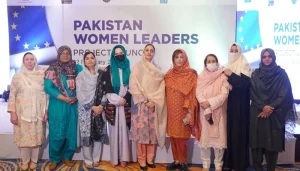
Dr. Hayam Qayyoum
Despite the geographical distance between Pakistan and Rwanda, both countries have a common vision for business growth at the domestic level and international expansion. Both have shared a peacekeeping agenda at the United Nations, showing unity. Rwanda is the most business-friendly nation among African countries, as it facilitates online company registration in a few hours and streamlines visa processing and simple business policies.
The most significant export of Rwanda is tea, which is routed through Kenya to Pakistan. This incurs a lot of logistical cost. To cut down the cost, a memorandum of understanding is signed between the two parties for collaboration in the fields of technology, trade, and defense. The direct shipping route between Pakistan and Rwanda is expected to be a breakthrough for investment, trade, and lower shipping costs, which is still under discussion.
For Pakistan, Rwanda is a gateway to the African region. It opens doors to the African market. As a member of the EAC (East African Community) and COMESA (Common Market for Eastern and Southern Africa), it provides a way to the African market where the whole world is looking forward to investing. Rwanda has offered a preferential trade arrangement to ease the Pakistan business community’s access to Rwanda and to the African market as well. According to the World Bank report (2024), it has been analyzed that Rwanda is a rapidly expanding economy with GDP growth from 8.2 percent in 2023 to 8.9 percent in 2024. Pakistan’s “look Africa policy” is completely aligned with the Rwanda economy expansion and dynamics, which could facilitate exporters to make a fortune in rice, cooking oil, textiles, pharmaceuticals, and surgical instruments. In Rwanda, the new avenues are tourism and education, where Pakistan can collaborate in providing human resources/ faculty and visit opportunities.
Furthermore, due to its Gender-Friendly policy, Rwanda has a diverse and very dynamic female-driven enterprise sector of 52 percent engaged in Micro, Small, and Medium Enterprises and 51percent sole business ownerships. Whereas women in Pakistan count roughly 14percent of ownership, nearly 1% are entrepreneurs, and less than 1 percent are engaged in SMEs. This lag is due to socio-economic and financial constraints and can be fulfilled through collaborative business efforts.
Entrepreneurs from Pakistan could collaborate with entrepreneurs of Rwanda and develop joint ventures in textiles, apparel, handicrafts, toiletries, and pharmaceuticals. Whereas a Rwanda entrepreneur can offer collaboration in the export of tea and coffee. This empowerment of women in both nations can lead to strengthening the economy and providing a platform for business expansion internationally to each other. Moreover, both countries may set up business facilitation desks in their chambers or in embassies to guide women about export and export terms and conditions and dossiers. This empowerment process would equally benefit both nations and flourish women-friendly businesess.
The author is : Sr. Assistant Professor’ Department of Media Studies, Bahria University Islamabad, can be reached at : [email protected]


